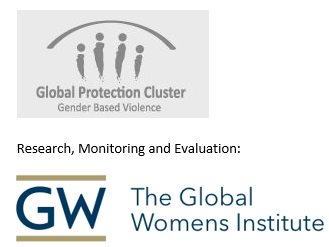While confidentiality issues (i.e. ensuring that no identifiable information will be shared and displaying all results in aggregate such as percentages or summary figures) should always be a key aspect of ethical data collection, upholding confidentiality takes on particular resonance when conducting research in conflict and post-conflict settings due to the particular vulnerabilities of the population being studied. In conflict and post-conflict settings, the breach of confidentiality can result in more severe consequences to study participants, their families, and community than for respondents in other settings. For participants who are survivors of VAWG, the loss of confidentiality can possibly lead to isolation and stigma or further violence. Risks to participants are further exacerbated when traditional support structures have been weakened by violence or displacement. Under these conditions, participants already living in precarious conditions prior to the conflict may not be able to access immediate support and protection.
Participants reporting non-partner sexual assault in conflict settings face exacerbated consequences for breaches of confidentiality. In particular, survivors reporting sexual assault by armed actors may face extreme consequences if the perpetrators uncover the purpose of the research, which may lead to further repercussions for the survivor and for the community itself.
Given the extreme vulnerability of refugee and conflict-affected populations, maintaining privacy and ensuring confidentiality during data collection must be considered at all stages of the research design. The confidentiality of survivors and their protection must be taken seriously at all times. To mitigate potential risks, the following measures should be followed:
- Data collectors should conduct data collection as quickly as possible while maintaining quality to reduce their profile in the community and minimize discussion of the data collection activities.
- Collect verbal/informed consent instead of written consent to protect participants from any repercussions. Researchers can sign to attest that consent was received if needed. Verbal consent is a common practice in these type of contexts. In any case, when written consent is used, paper consent forms are still typically used even when data is collected via mobile platforms.
- Consider the locations and timing of interviews/focus groups including considering setting appointments for participants to be interviewed at neutral locations such as health centers or community centers
- Weigh the risks of asking questions about gender identity and/or sexual orientation in countries with anti-LGBTI laws and policies.
- Where possible, collect data anonymously. For example, do not write down the names of the participants or any other identifiable information involved (such as contact details or address) unless follow up (for quality control or as a part of the methodological design) is planned.
- When identifiable information is collected, special procedures must be in place to maintain confidentiality and limit the potential for breaches.
- For example, assign a code to each individual participant and record the respective code on all completed questionnaires.
- Store all identifiable information separately from the completed questionnaire.
- Both the questionnaire and list of identifiable information will be needed to identify the participant.
- All data must be secure during and after data collection activities.
- Password protect or encrypt any tablets, phones or computers used for data collection or storage.
- Store hard copies of data in locked cabinets.
- In extremely insecure environments, keep hard copies of data and equipment far away from the study site or remove entirely from the region or country.
- Ensure findings are sufficiently aggregated to avoid identification.
